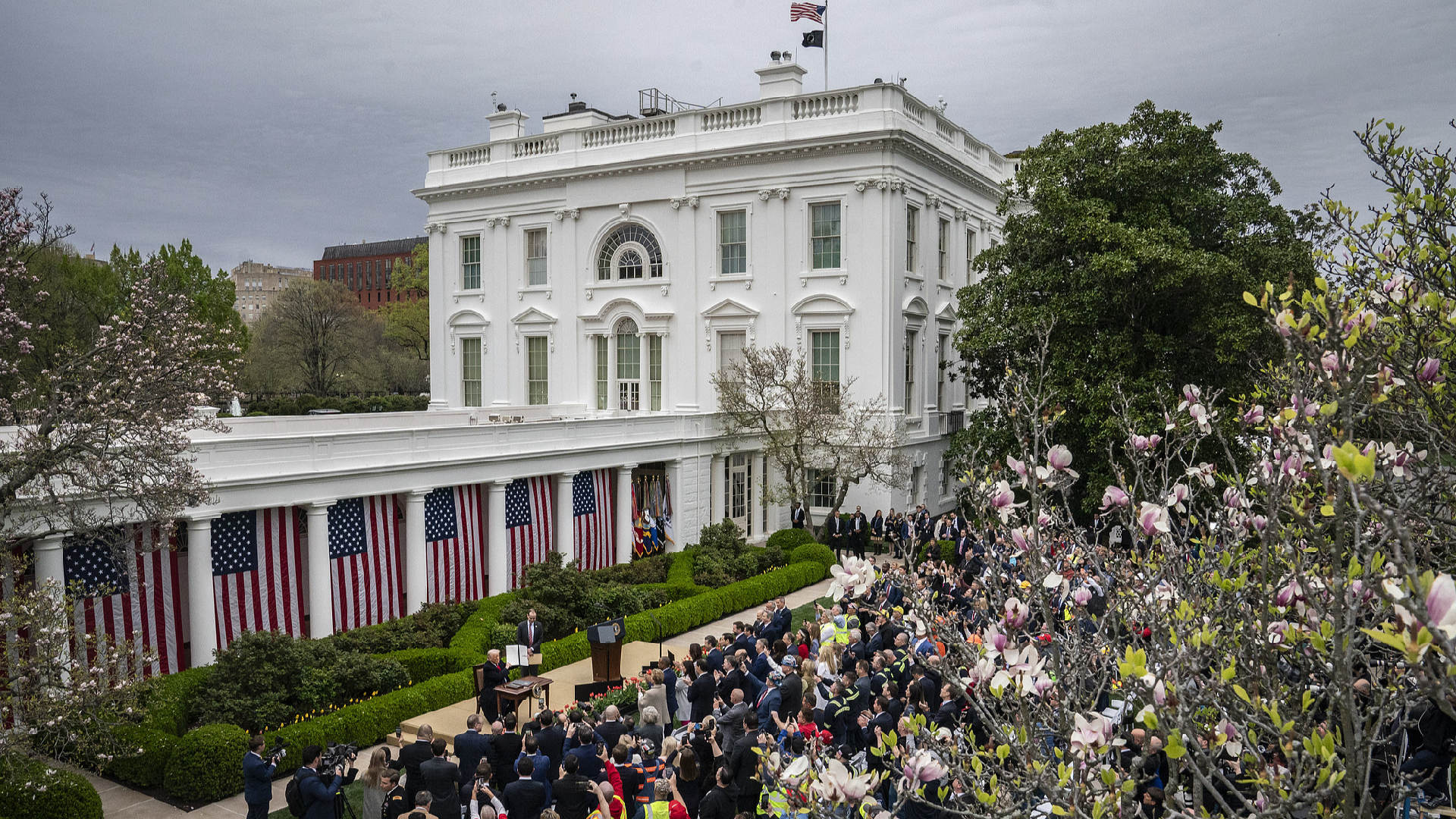World markets tremble as Trump intensifies trade conflict with new tariffs
Shares in Europe and Asia, along with U.S. futures, plummeted Thursday after U.S. President Donald Trump announced substantial tariff increases on global imports. The announcement of double-digit tariff hikes unsettled global markets, igniting...

The announcement of double-digit tariff hikes unsettled global markets, igniting concerns about a possible worldwide recession.
Futures for the S&P 500 fell 3.1 percent, while those for the Dow Jones Industrial Average declined by 2.6 percent, indicating potential losses for U.S. markets when they open later Thursday.
In Europe, Germany's DAX fell by 1.7 percent to 21,998.48, France's CAC 40 decreased by 1.8 percent to 7,716.66, and Britain’s FTSE 100 slipped 1.2 percent to 8,506.44.
Asian markets were particularly impacted, with Tokyo's Nikkei 225 index briefly plummeting 4 percent before closing 2.8 percent lower at 34,735.93. Major Japanese firms suffered significant declines; for instance, Mitsubishi UFJ Financial Group saw its shares plummet 7.2 percent as the prospect of 24 percent tariffs on Japan's export-heavy economy diminished hopes that the central bank would continue raising interest rates, while Mizuho Financial Group fell 8 percent.
Sony Corp.'s stock decreased by 4.8 percent, and Toyota Motor Corp. saw a drop of 5.2 percent.
The Japanese yen strengthened, with the U.S. dollar falling to 147.42 yen from 149.28. Meanwhile, the euro rose to $1.0952 from $1.0855.
In South Korea, which faced a 25 percent tariff, the benchmark Kospi dropped 1.1 percent to 2,486.70.
Hong Kong's Hang Seng index fell by 1.7 percent to 22,813.22, while the Shanghai Composite index edged down 0.2 percent to 3,342.01.
Yeap Jun Rong of IG Singapore described the announcement as a "major shock," noting that "China, in particular, was hit with an additional 34 percent tariff, bringing its total tariff burden to 64 percent when accounting for previous measures."
However, market losses were moderated somewhat by expectations of additional economic stimulus from Beijing to counter the effects of the heightened tariffs.
In Australia, the S&P/ASX 200 declined by 0.9 percent to 7,859.70.
Thailand's SET index decreased by 1.1 percent after the country was assigned a 36 percent tariff on its exports to the U.S., which could result in a drop in Thai exports by $7 billion to $8 billion, or about 2.3 percent of the total, according to a report by Kasem Prunratanamala of CGS International.
The day prior, U.S. stocks experienced wild fluctuations before Trump revealed his "Liberation Day" tariffs.
The S&P 500 ended Wednesday up 0.7 percent at 5,670.97, after swinging between a loss of 1.1 percent and a subsequent gain of 1.1 percent. This week, the index had shown a tendency to open sharply lower but finish higher.
The Dow industrials rose by 0.6 percent to 42,225.32, while the Nasdaq composite increased by 0.9 percent to 17,601.05.
Global financial markets have faced volatility amid uncertainty regarding Trump’s escalating trade conflict. While the U.S. president asserts that tariffs will lead to a fairer global system and bring jobs back to America, economists caution that such measures could hinder growth, negatively impact world economies, and worsen inflation, which is already above the Federal Reserve’s 2 percent target.
After markets closed, Trump announced a baseline tax of 10 percent on all imports, imposing steeper tariffs on countries with trade surpluses. He presented a chart at the White House detailing a 34 percent tariff on Chinese imports and a 20 percent tariff on goods from the European Union.
Previously, Trump had enacted 25 percent tariffs on auto imports and taxes on products from China, Canada, and Mexico, while also broadening tariffs on steel and aluminum. Additionally, he implemented import taxes on Venezuelan oil and outlined plans for similar measures on pharmaceutical drugs, lumber, copper, and computer chips.
Bond markets reflected this uncertainty, with 10-year Treasury yields fluctuating between a morning low of 4.11 percent and a later increase to 4.18 percent, indicating changing expectations on economic growth and inflation.
Oil prices also fell, with U.S. benchmark crude dropping $2.63 to $69.08 per barrel, while Brent crude declined by $2.62 to $72.33 per barrel.
Olivia Brown for TROIB News
Find more stories on Business, Economy and Finance in TROIB business












